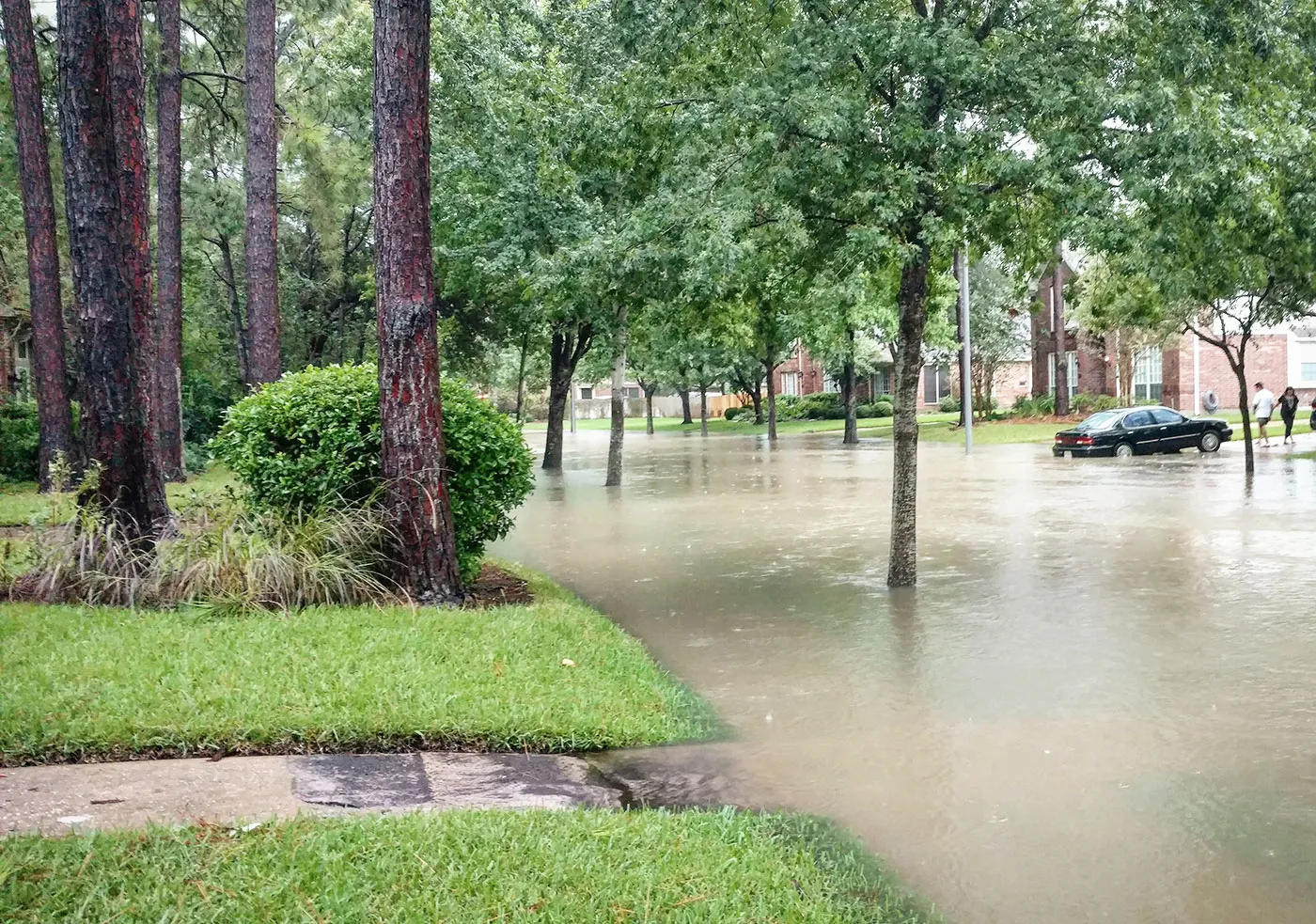Does Renters Insurance Cover Flood Damage?

If you're a renter, your landlord may have an insurance policy to protect the property itself—but it's another story when it comes to yourself and your belongings. That's where a renters insurance policy comes in to help if disaster strikes in the form of a burglary, fire or other catastrophe that's covered by your policy. In the event of a flood, however, renters insurance typically will not cover you.
So where does that leave renters who live in flood-prone areas? Here's how to protect yourself and your belongings if you think you may be affected by a flood.
What Does Renters Insurance Cover?
Renters insurance can provide protection against a wide range of events. Coverage is usually broken down into the following three categories.
Personal Possessions
If your personal belongings are damaged during a covered event, your renters insurance policy can help you recoup the cost of replacing them. The best move is to have enough coverage that you would be able to replace all of your possessions if they were to be suddenly destroyed or stolen. Listing out all of your belongings, along with their values, is a good place to start. Going further and keeping things like receipts and serial numbers can help make things go smoothly if you ever have to file a claim. Covered property can include everything from electronics and furniture to jewelry and clothing, and knowing your property's value can help you select a policy that has adequate coverage.
Renters insurance policies typically fall into one of two categories and cover up to the limit of your policy:
- Actual cash value: Item depreciation is determined and deducted from the amount the insurance company will pay you to replace it. So if your TV is older or has some normal wear and tear, don't expect to receive the equivalent cost of a brand new model.
- Replacement cost: Depreciation never comes into play with this type of coverage, which means you'll be covered for the actual amount it costs to replace your belongings.
Liability
Most renters insurance policies protect against property damage and bodily injuries that you or other members of your household (including pets) cause to others. Your policy may also include no-fault medical coverage, up to a certain limit, should someone hurt themselves while in your home. Generally speaking, liability coverage may also extend to a portion of court costs. The amount will depend on your policy.
Additional Living Expenses
If a covered event renders your home unlivable, your renters insurance policy could help cover additional living expenses. Coverage includes many types of expenses you might encounter while your home is being repaired. Costs related to temporary housing and food, for example, can be covered. The amount you'll be able to receive depends on your individual policy.
What Isn't Covered Under Renters Insurance?
Floods and earthquakes aren't typically covered by renters insurance. However, you can purchase additional coverage to keep you better protected. (More on this in a moment.) It's also important to remember that every policy is different. When shopping around, be sure to pay attention to policy limits: This is the amount your plan will cover for different scenarios. When you do a little digging, you may find that your personal property, for instance, is only covered up to a certain amount—especially where high-value items are concerned.
Look closely at your policy to get an accurate idea of what else may not be covered. For example, pest-related damage is usually off the table.
How to Decide if You Need Additional Flood Insurance
Flood damage can wreak havoc on your rental home and personal property, particularly for those who live in a flood zone. Anyone is at risk of flood damage, though, as the Federal Emergency Management Agency (FEMA) reports that 1 in 3 insurance claims are generated by folks who live in lower-risk areas. Those who are looking to add flood coverage to their renters insurance can either do so through the National Flood Insurance Program or through a private flood insurer.
Ultimately, the decision of whether to sign up for a flood insurance policy depends on your own risk tolerance, ability to cover damage related to a flood and ability to afford a flood insurance premium. Weigh these factors, along with the likelihood that you'll ever put your policy to use, when deciding if a flood insurance policy is right for you.
The cost of a flood insurance policy will vary depending on things like your flood risk, deductible and location. As of 2019, the average premium came in at $700, according to FEMA. Of course, every state is different, and the premium you end up paying will likely be higher if you live in a flood-prone area.
The Bottom Line
Flood insurance is one of those things you pay for hoping you'll never need to use. While having a renters insurance policy can certainly protect you from many different scenarios, flood damage isn't normally covered. Even without a flood insurance policy, having a renters insurance in place can save your finances in the event of a disaster. And adding a flood insurance policy to your existing insurance could provide further peace of mind since you'll be protected in more scenarios.
What makes a good credit score?
Learn what it takes to achieve a good credit score. Review your FICO® Score for free and see what’s helping and hurting your score.
Get your FICO® ScoreNo credit card required
About the author
Marianne Hayes is a longtime freelance writer who's been covering personal finance for nearly a decade. She specializes in everything from debt management and budgeting to investing and saving. Marianne has written for CNBC, Redbook, Cosmopolitan, Good Housekeeping and more.
Read more from Marianne